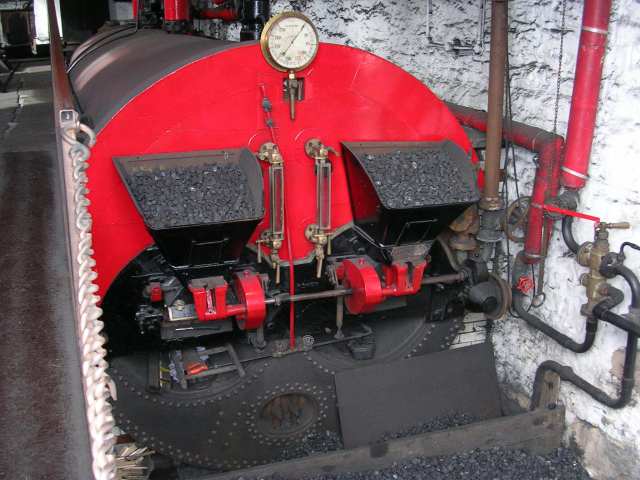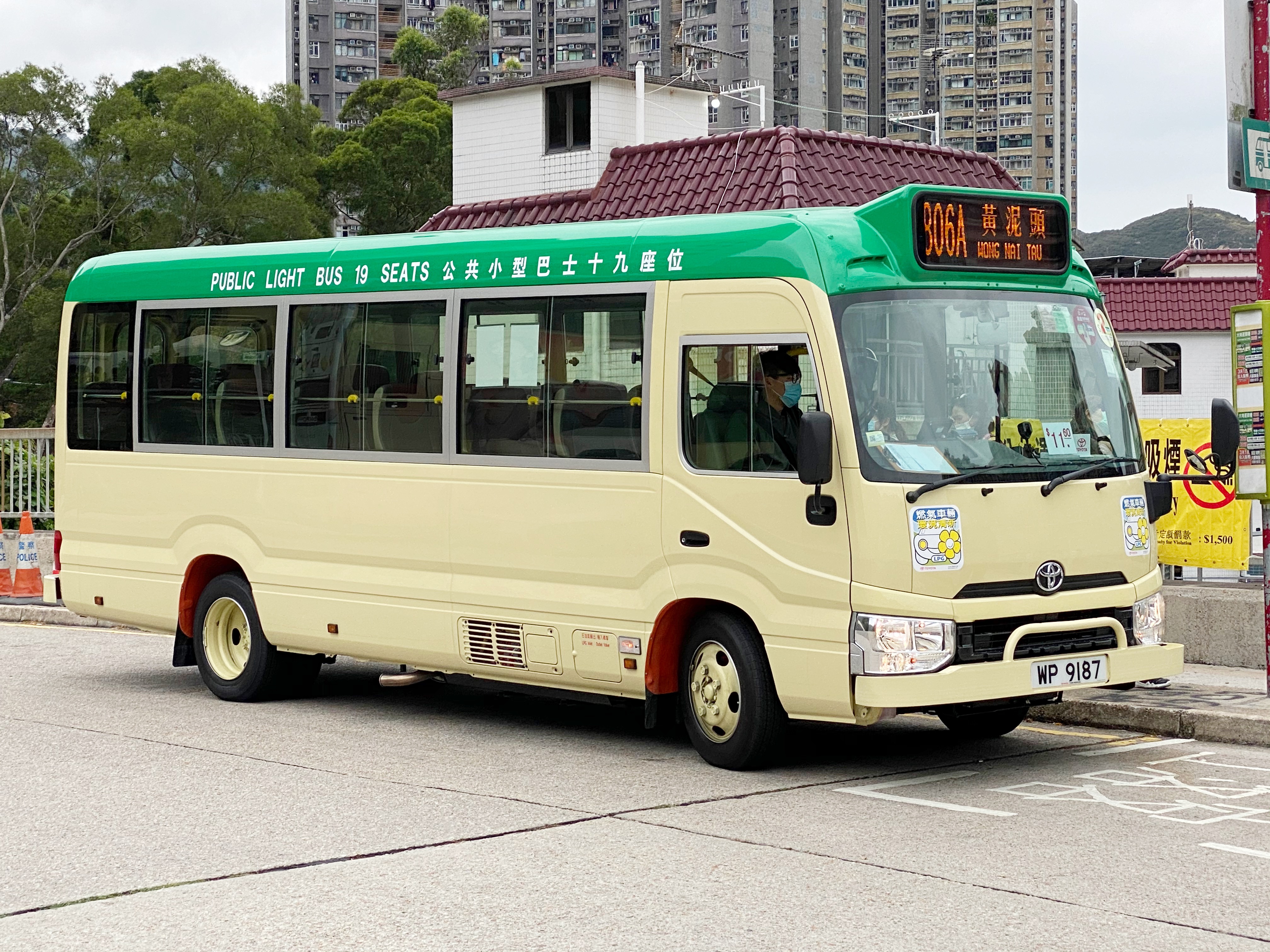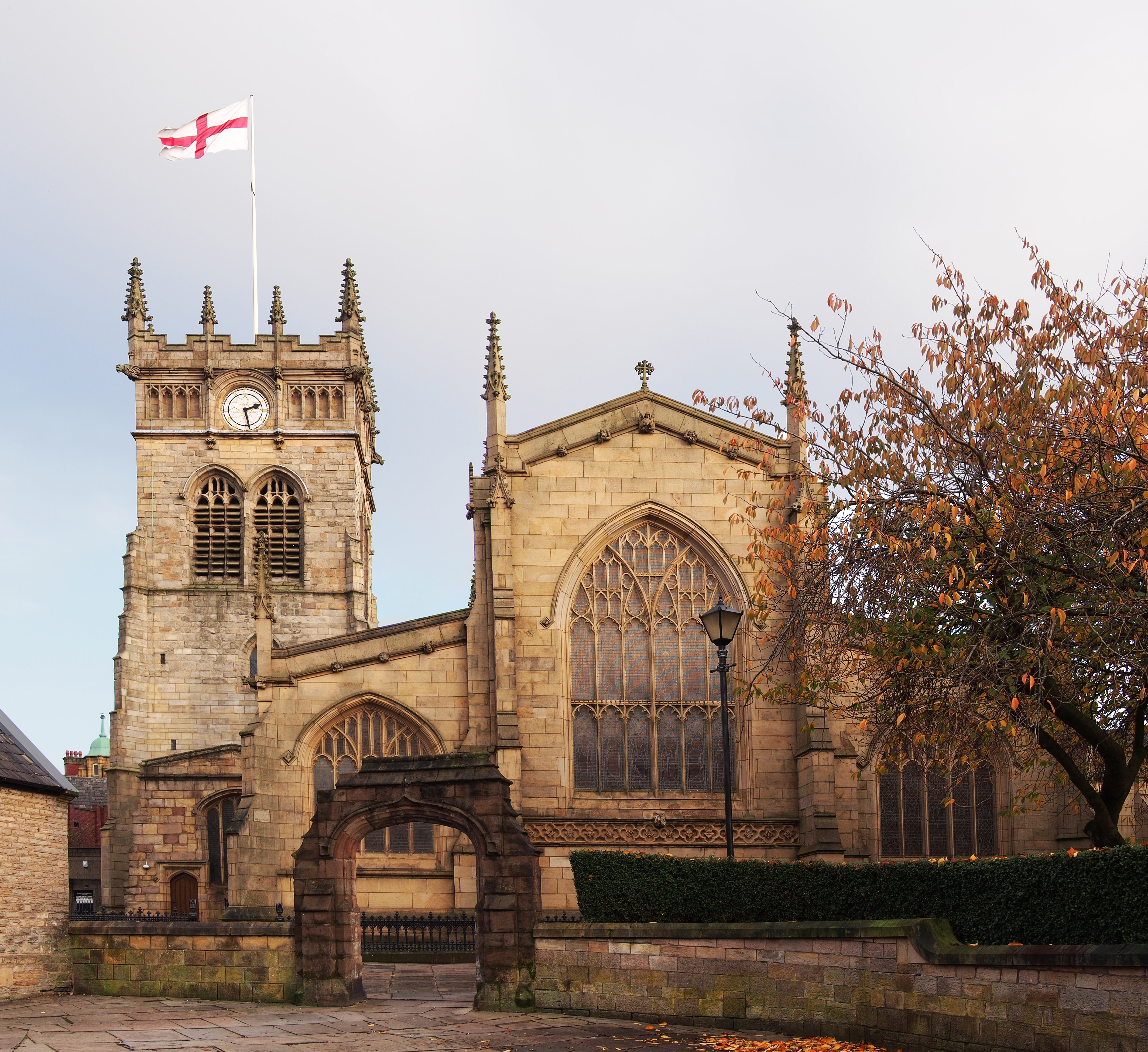|
GM Buses
GM Buses was the main bus company serving the ten metropolitan districts of Greater Manchester in North West England. The company was formed in 1986 by the Greater Manchester Passenger Transport Executive. In December 1993, it was split into GM Buses North and GM Buses South in order to increase competition for services in the area, before they were sold to the FirstGroup and Stagecoach respectively. History The Transport Act 1968 resulted in several bus companies run by local authorities around Greater Manchester merging to create a central organisation. It consisted of companies operating in the following areas: *Ashton-under-Lyne *Bolton *Bury *Leigh *Manchester *Oldham *Rochdale *Salford *Stalybridge, Hyde, Mossley & Dukinfield (Operated by the SHMD Joint Board) *Stockport *Wigan The new central organisation was named SELNEC, the South East Lancashire North East Cheshire Passenger Transport Executive, and commenced operations on 1 October 1969. The SELNEC catchment ar ... [...More Info...] [...Related Items...] OR: [Wikipedia] [Google] [Baidu] |
Greater Manchester Passenger Transport Executive
Greater Manchester Passenger Transport Executive was the public body responsible for public transport in Greater Manchester between 1974 and 2011, when it became part of Transport for Greater Manchester. SELNEC PTE Until 1969, the conurbation surrounding Manchester was divided between the two administrative counties of Lancashire and Cheshire and a number of county boroughs, such as Manchester, Salford, Stockport or Bolton. To comply with the Transport Act 1968, on 1 April 1969 the SELNEC Passenger Transport Executive was formed. ''SELNEC'' stood for ''South East Lancashire North East Cheshire'', a joint authority of the various local councils. From 1 November 1969, the PTE took over the bus fleets of 11 municipalities, and operationally, the organisation was split into three divisional areas, Northern, Central, and Southern: Northern *Bolton Corporation (249 vehicles) * Bury Corporation (96 vehicles) * Leigh Corporation (57 vehicles) *Ramsbottom Urban District Council ... [...More Info...] [...Related Items...] OR: [Wikipedia] [Google] [Baidu] |
Hyde, Greater Manchester
Hyde is a town in Tameside, Greater Manchester, England, which had a population of 34,003 in 2011. Historically in Cheshire, it is northeast of Stockport, west of Glossop and east of Manchester. History Early history Newton Hall was present in the thirteenth century. The area formed a township of the parish of St Mary, Stockport. Its name is derived from the '' Hide'', a measure of land for taxation purposes, taken to be that area of land necessary to support a peasant family. In later times it was taken to be equivalent to . In the late 18th century the area that was to become the town centre was no more than a cluster of houses known as Red Pump Street. Gee Cross was much larger and 'Hyde' was still only used to refer to the estates of Hyde Hall on the banks of the River Tame. Altogether there were only 3,500 inhabitants in the district in 1801. The town is largely a creation of the 19th century and the Industrial Revolution. Industrial Revolution The population of Hyd ... [...More Info...] [...Related Items...] OR: [Wikipedia] [Google] [Baidu] |
Finglands Coachways
Finglands Coachways was a bus and coach operator in Rusholme, Manchester. History Finglands Coachways was founded in 1907, initially as a coach operator. Bus services competing with GM Buses and other operators would be set up following deregulation in 1986. In 1992, Finglands were purchased by East Yorkshire Motor Services, the company's first purchase outside of their native operating area. In October 1995, Finglands acquired the operations of competitor Stagecoach Manchester, then an operation by Stagecoach Ribble consisting of thirteen buses competing with Finglands and GM Buses South along route 192. On 1 August 2013, FirstGroup announced that, subject to regulatory approval, by the Office of Fair Trading, it had agreed to purchase the bus operation. The sale included the lease of Finglands's depot in Rusholme, routes and approximately 100 members of staff, but no buses. The deal was approved in January 2014, with First Greater Manchester taking over on 9 February 201 ... [...More Info...] [...Related Items...] OR: [Wikipedia] [Google] [Baidu] |
Bee Line Buzz Company
North Western Road Car CompanyCompanies House extract company no 523376 Arriva North West Limited formerly North Western Road Car Company Limited formerly Mexborough & Swinton Traction Company Limited was a bus operator based in , England. The company operated between 1986 and 1998. History In the lead up to the of the National Bus Company, in 1986 the go ...[...More Info...] [...Related Items...] OR: [Wikipedia] [Google] [Baidu] |
Minibus
A minibus, microbus, minicoach, or commuter (in Zimbabwe) is a passenger-carrying motor vehicle that is designed to carry more people than a multi-purpose vehicle or minivan, but fewer people than a full-size bus. In the United Kingdom, the word "minibus" is used to describe any full-sized passenger-carrying van or panel truck. Minibuses have a seating capacity of between 12 and 30 seats. Larger minibusses may be called midibuses. Minibuses are typically front engine step in vehicles, although low floor minibuses do exist and are particularly common in Japan. Minibuses may range in price from £2000 to nearly £100,000. History It is unknown when the first minibus vehicle was released but it is possible that the first one was the 1935-1955 Chevrolet Suburban or the Volkswagen Transporter, even though the Suburban is thought by most to be an SUV, the first generation to the third generation could have theoretically be classified as minibusses today. Usage Minibuses are u ... [...More Info...] [...Related Items...] OR: [Wikipedia] [Google] [Baidu] |
Bus Deregulation In Great Britain
Bus deregulation in Great Britain was the abolition of Road Service Licensing outside of Greater London for bus services. This began in 1980 with the abolition of Road Service Licensing for long-distance bus services and was extended into local bus services in 1986. The abolition of Road Service Licensing removed the public sector's role in fare-setting, routes and bus frequencies and returned these powers to bus operators under the Transport Act 1985. History The bus industry grew significantly after the First World War in Britain with many demobilised soldiers starting bus companies with new skills in motor engineering and driving acquired through their military service. These bus services began to erode the railways' profits as they abstracted passengers from railways, the impact of this on the railways led to the creation of the big four. The bus industry then began to consolidate and many were acquired by railway companies. Remaining independent operators however were ... [...More Info...] [...Related Items...] OR: [Wikipedia] [Google] [Baidu] |
Atherton, Greater Manchester
Atherton () is a town in Greater Manchester, England and historically a part of Lancashire. The town, including Hindsford, Howe Bridge and Hag Fold, is south of Bolton, east of Wigan, and northwest of Manchester. From the 17th century, for about 300 years, Atherton was known as Chowbent, which was frequently shortened to Bent, the town's old nickname. During the Industrial Revolution, the town was a key part of the Manchester Coalfield. Atherton was associated with coal mining and nail manufacture from the 14th century, encouraged by outcropping coal seams. At the beginning of the 20th century, the town was described as "the centre of a district of collieries, cotton mills and iron-works, which cover the surface of the country with their inartistic buildings and surroundings, and are linked together by the equally unlovely dwellings of the people". Atherton's last deep coal mine closed in 1966, and the last cotton mill closed in 1999. Today the town is the third-largest ret ... [...More Info...] [...Related Items...] OR: [Wikipedia] [Google] [Baidu] |
Lancashire United Transport
Lancashire United Transport (LUT) was a tram, bus and trolleybus operator based at Howe Bridge in Atherton, 10 miles north west of Manchester. It was the largest independent bus operator in the United Kingdom until its acquisition by the Greater Manchester Passenger Transport Executive in 1976. History The company was founded in 1905 as Lancashire United Tramways Ltd to assume operation of the South Lancashire Tramways tram system, which had run into financial difficulties. Ogden 2006, p.13 The tram system was centred on the towns of Leigh and Atherton in South Lancashire, with lines running towards St Helens, Wigan, Bolton and Salford. Trams continued to run under the "''South Lancashire Tramways''" fleetname, but after World War I LUT took the opportunity to operate motorbus services using the "''Lancashire United''" fleetname. By 1926, the bus fleet had reached the total of 100 operating over 21 routes. Ogden 2006, p.34 The company changed its name in the same year to Lan ... [...More Info...] [...Related Items...] OR: [Wikipedia] [Google] [Baidu] |
Local Government Act 1972
The Local Government Act 1972 (c. 70) is an Act of the Parliament of the United Kingdom that reformed local government in England and Wales on 1 April 1974. It was one of the most significant Acts of Parliament to be passed by the Heath Government of 1970–74. Its pattern of two-tier metropolitan and non-metropolitan county and district councils remains in use today in large parts of England, although the metropolitan county councils were abolished in 1986, and both county and district councils have been replaced with unitary authorities in many areas since the 1990s. In Wales, too, the Act established a similar pattern of counties and districts, but these have since been entirely replaced with a system of unitary authorities. Elections were held to the new authorities in 1973, and they acted as "shadow authorities" until the handover date. Elections to county councils were held on 12 April, for metropolitan and Welsh districts on 10 May, and for non-metropolitan distri ... [...More Info...] [...Related Items...] OR: [Wikipedia] [Google] [Baidu] |
Commercial Motor
''Commercial Motor'' is a weekly magazine serving the road transport industry in the United Kingdom. Founded in 1905 by Edmund Dangerfield, it is notable for having been "the first journal to be devoted exclusively to the commercial vehicle engaged in the conveyance of goods or in passenger carrying". Originally named ''The Commercial Motor'', the title was shortened to ''Commercial Motor'' for the first issue of 1966. The publication is commonly referred to as 'CM' by its readers and editorial staff. ''Commercial Motor'' was initially published by Temple Press and since 2011 it has been published by Road Transport Media. Launch ''The Commercial Motor'' was launched in March 1905 by Temple Press. In the leader of the first issue it described itself as a "missionary and educative medium". For the first issue on 16 March, 20,000 copies were issued "in Britain and other countries, with the hope that the normal weekly circulation would be at least 5,000". Composition The content ... [...More Info...] [...Related Items...] OR: [Wikipedia] [Google] [Baidu] |
Wigan
Wigan ( ) is a large town in Greater Manchester, England, on the River Douglas, Lancashire, River Douglas. The town is midway between the two cities of Manchester, to the south-east, and Liverpool, to the south-west. Bolton lies to the north-east and Warrington to the south. It is the largest settlement in the Metropolitan Borough of Wigan and is its administrative centre. The town has a population of 107,732 and the wider borough of 330,713. Wigan was formerly within the Historic counties of England, historic county of Lancashire. Wigan was in the territory of the Brigantes, an ancient Celtic tribe that ruled much of what is now northern England. The Brigantes were subjugated in the Roman conquest of Britain and the Roman settlement of ''Coccium'' was established where Wigan lies. Wigan was incorporated as a Borough status in the United Kingdom, borough in 1246, following the issue of a charter by Henry III of England, King Henry III of England. At the end of the Middle ... [...More Info...] [...Related Items...] OR: [Wikipedia] [Google] [Baidu] |
Stockport
Stockport is a town and borough in Greater Manchester, England, south-east of Manchester, south-west of Ashton-under-Lyne and north of Macclesfield. The River Goyt and Tame merge to create the River Mersey here. Most of the town is within the boundaries of the historic county of Cheshire, with the area north of the Mersey in the historic county of Lancashire. Stockport in the 16th century was a small town entirely on the south bank of the Mersey, known for the cultivation of hemp and manufacture of rope. In the 18th century, it had one of the first mechanised silk factories in the British Isles. Stockport's predominant industries of the 19th century were the cotton and allied industries. It was also at the centre of the country's hatting industry, which by 1884 was exporting more than six million hats a year; the last hat works in Stockport closed in 1997. Dominating the western approaches to the town is Stockport Viaduct. Built in 1840, its 27 brick arches carry the mai ... [...More Info...] [...Related Items...] OR: [Wikipedia] [Google] [Baidu] |
.jpg)




_-_geograph.org.uk_-_2919099.jpg)


